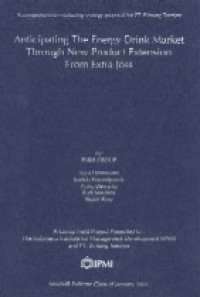
Applying the Learning Organization
| Gmd : Text
| Availability :
| 00000008250 | 199 | (GFP) | Available - Ada |
At the core of the learning organization is individual learning. Although individual learning does not guarantee organizational learning, there cannot be organizational learning without it.
In Sampoerna ICBU (Indonesian Cigarette Business Unit) marketing division, employees learned mostly through formal and informal meeting, internal and external training, interpersonal experience exchange, tour of duty and project assignments. Learning from books or from benchmarking to colleagues and other companies are considered less effective compared to learning from meeting, training or interpersonal experience exchange. Informal meeting is considered a more effective learning tool than formal meeting and external training more effective than internal training. Learning from role model is not found since the respondents cannot identify any role model in the company.
Although there are several learning activities taking place in Sampoerna, none is considered to be at its maximum effectiveness yet. In general, the training given so far is seen as not meeting individual needs and there is too little external training. Main obstacle to learning is time limitation due to job overload. Part of the reason could be a lack of clear direction and the frequent instant changes in the assignments given. To overcome this, projects need to be prioritized and be more focused. Employees have to also learn to prioritize their jobs and put a discipline to learning in order to become part of a learning organization. At the individual level, it is suggested to have more formal training tailored to the individual competency needs. Post training feedback, coaching and mentoring are also suggested since employees felt a strong need for feedback on their performance on projects and assignments.
Of the four cultures that support a learning organization -suggestion culture, empowerment culture, teamwork culture, empathy culture -the teamwork culture is found to be most dominant among the grade 13 respondents while it is least dominant among the grade 15 respondents. The most dominant culture among the grade 15 respondents is suggestion culture. The desirable culture in the company as seen by both the grade 13 and 15 employees are teamwork culture, empowerment culture, suggestion culture and empathy culture.
Although employees do not mind sharing their knowledge and experience, most employees do not know where the right source of information is. Knowledge and experience sharing is taking place among defined groups only and is still not taking place wide across the organization and spontaneously.
Grade 13 respondents see the sharing of experience and knowledge among employees as the highest driving force for learning whereas the grade 15 respondents see it as meaningful only if this sharing of experience is reflected in their performance.
To foster a better teamwork and to develop into a learning organization, a commitment from the top is a must and a task force consisting of inter departmental team can act as agents of change and take up a business case as a task. A dialoguing session and team learning process is suggested on a 2-3 day outing in a resort area. Development of the case problem is informed via the company's Lotus notes to have the involvement of more and more employees. This activity is suggested to be tied in into the employees' yearly performance appraisal. There should be more and more teams being formed and this cycle should then be repeated until learning then becomes a new habit of the employees.
Reseach Location: PT. H. M. Sampoerna Tbk.
Supervisor: T. N. Mahmud, S.H., MSc., A. D. HAbir, PhD., Amalia E. Maulana, MM, MBA.
Accepted on December 1999.
For IPMI Internal -- Read at library only
| Series Title |
-
|
|---|---|
| Call Number |
199
|
| Publisher Place | Jakarta |
| Collation |
iii, 66p.: figs., questinnaire; 27 cm.
|
| Language |
English
|
| ISBN/ISSN |
-
|
| Classification |
-
|
| Media Type |
-
|
|---|---|
| Carrier Type |
-
|
| Edition |
-
|
| Subject(s) | |
| Specific Info |
-
|
| Statement |
-
|
| Content Type |
-
|
No other version available







